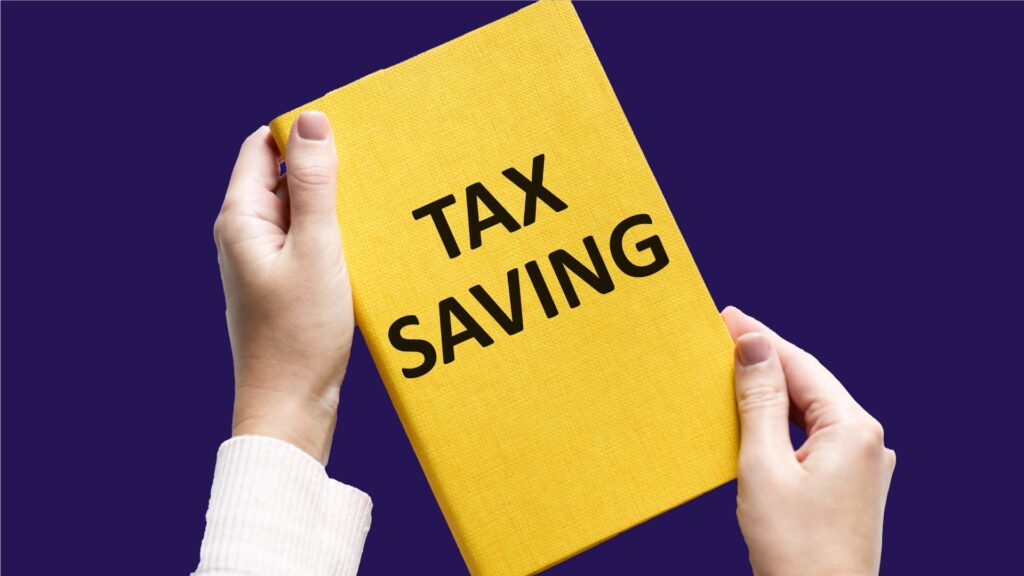Tax saving strategies
Tax saving strategies: As a self-employed individual in India, managing taxes effectively is crucial for maintaining healthy finances. Unlike salaried employees who have tax deducted at source (TDS), self-employed professionals must take a proactive approach toward tax planning. At Legalari, we provide corporate advisory services, including tax planning for self-employed individuals. In this article, we’ll discuss effective Tax saving strategies for self-employed individuals in India that can help you minimize your tax liabilities and maximise available benefits.

1. Understand Your Income Sources
The first step in effective tax-saving strategies for self-employed individuals in India is understanding their income sources. Self-employed individuals can earn through various channels like freelancing, consulting, or running a small business. It’s essential to categorize income accurately, as different types of income may be eligible for specific deductions under the Income Tax Act.
Essential Tip: Ensure you maintain accurate records of all your income sources and expenditures. Proper documentation is critical for claiming deductions when filing Income Tax Returns (ITR).
2. Claim Deductions Under Section 80C
Section 80C of the Income Tax Act is a popular provision for saving tax. Self-employed individuals can invest in eligible instruments and claim a deduction of up to INR 1.5 lakh. These Tax saving strategies for self-employed individuals in India can significantly reduce your tax burden.
Some of the popular investment options under Section 80C include:
- Public Provident Fund (PPF)
- National Savings Certificate (NSC)
- Life Insurance Premiums
- Tax-saving Fixed Deposits (with a 5-year lock-in)
- Equity-Linked Savings Scheme (ELSS)
- Essential Tip: If you’re looking for higher returns with a slightly higher risk, consider investing in ELSS. These funds have a lock-in period of 3 years, making them a shorter-term option than PPF or NSC.
3. Take Advantage of Section 80D for Health Insurance
Health insurance premiums paid for yourself, your spouse, children, and parents can be claimed as a deduction under Section 80D. This deduction is a great way to reduce your tax liability and ensures financial security during medical emergencies.
- For Self, Spouse, and Children: You can claim up to INR 25,000.
- For Parents: If they are senior citizens, an additional INR 50,000 can be claimed.
Essential Tip: Consider purchasing a health insurance policy with adequate coverage for your entire family to make the most of this deduction as part of your Tax saving strategies for self-employed individuals in India..
4. Depreciation on Assets
If you own assets like computers, laptops, office furniture, or even a vehicle used for business purposes, you can claim depreciation on them. Depreciation is a non-cash expense that reduces your taxable income, making it an effective part of tax-saving strategies for self-employed individuals in India.
The Income Tax Act specifies different depreciation rates for various assets. For example, computers may be depreciated more than office furniture.
Essential Tip: Maintain proper records of asset purchases and their depreciation schedules to avoid disputes during tax assessments.
5. Section 80E: Interest on Education Loans
If you have taken an education loan for yourself, your spouse, or your children, you can claim a deduction on the interest paid under Section 80E. This deduction can be availed for up to 8 years or until the interest is paid off, whichever is earlier.
Key Tip: This deduction is especially beneficial if you’re looking to upskill yourself through higher education or specialized courses that enhance your professional growth. It is one of the lesser-known tax-saving strategies for self-employed individuals in India.
6. Home Office Deductions
Many self-employed individuals work from home, which can make them eligible for home office deductions. You can claim expenses related to maintaining a home office, such as a proportionate share of rent, electricity bills, internet charges, and even repairs.
Essential Tip: To qualify for these deductions, ensure that your home office is used exclusively for business purposes. Partial or casual use of a home space may not be eligible for a full deduction, but it remains a viable tax-saving strategy for self-employed individuals in India.
7. Claiming Business Expenses
One of the significant advantages for self-employed individuals is the ability to claim business expenses as deductions. These expenses can include:
- Office Rent and Utilities
- Travel and Conveyance Expenses
- Marketing and Advertising Costs
- Software and IT Equipment
Essential Tip: Maintain invoices and receipts for all your business expenses to justify your claims during the tax filing process. This will also make it easier to calculate your actual business income and leverage tax-saving strategies for self-employed individuals in India.
8. Utilize Section 80G for Donations
If you are philanthropic, you can save taxes by donating to charitable organizations. Contributions made to certain funds and organizations under Section 80G are eligible for tax deductions, adding to the list of Tax saving strategies for self-employed individuals in India.
50% or 100% Deduction: Depending on the type of organization you donate to, you can claim either 50% or 100% of the donation as a deduction.
Essential Tip: Obtain a receipt from the charitable organization containing their PAN number to claim this deduction.
9. Investment in National Pension System (NPS) - Section 80CCD(1B)
The National Pension System (NPS) allows you to claim an additional deduction of INR 50,000 under Section 80CCD(1B) over and above the INR 1.5 lakh limit of Section 80C. That is a great way to build a retirement corpus while saving on taxes through Tax saving strategies for self-employed individuals in India.
Essential Tip: NPS is a long-term investment; the funds are locked in until you reach 60. However, the returns on NPS are generally better than those of other conservative investment options.
10. Pay Advance Tax to Avoid Penalties
As a self-employed individual, you must pay advance tax if your tax liability exceeds INR 10,000 in a financial year. The advance tax needs to be paid in four instalments throughout the year.
Essential Tip: Use the income tax calculator on the Income Tax Department’s website to estimate your tax liability and pay advance tax on time. That will help you avoid interest penalties under Sections 234B and 234C, making this a critical tax-saving strategy for self-employed individuals in India.
Conclusion
Effective tax planning is not just about reducing your tax liability; it’s about strategically investing and saving for a secure future. By taking advantage of the deductions and exemptions discussed above, self-employed individuals can significantly reduce their tax burden and optimize their savings. At Legalari, we specialize in guiding self-employed individuals through the complexities of tax planning and compliance, helping them implement the best Tax saving strategies for self-employed individuals in India. For personalized advice and assistance with your tax-saving strategy, contact us.

